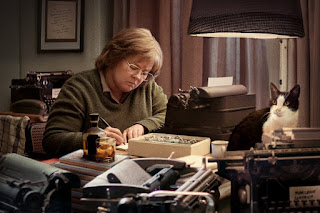Like many directors, Whit Stillman
likes to work repeatedly with a certain group of actors, and it's no
wonder. If you find someone who is willing to recite the ridiculous
lines that Stillman puts into his characters' mouths, you stick with
them.
In Barcelona, Taylor Nichols (from
Stillman's first film, “Metropolitan”) plays Ted, a stuffy
American salesman in his company's Barcelona office. Ted's quiet
life is disturbed when his free-loading cousin, Fred (Chris Eigeman,
also a Stillman favorite) shows up. As part of his job, Ted gets to
meet loads of pretty girls who work at a convention center, but he
doesn't seem to get with any of them. Fred changes all that. Soon,
the cousins are out on the town, meeting impossibly cute,
sexually-liberated girls and falling in love, all to a backdrop of
anti-American political sentiment.
Chris Eigeman returns for 1998's “The
Last Days of Disco,” but the stars of the film are Chloe Sevigny
and Kate Beckinsale. They play Alice and Charlotte respectively, a
couple of college acquaintances, now junior book editors struggling
on their low salaries to afford New York City rents and still enjoy
the night life. Charlotte is hot, but as friends and roommates go,
she's the worst. She says whatever mean thing comes into her head,
oblivious to its effect on others. Here's a sample of conversation
with Charlotte:
Charlotte: I'm sorry, it's just that
you're so terrific, it makes me sick to think you might get in that
terrible situation again where everyone hated you.
Alice: Hated me?
Charlotte: You're wonderful. Maybe in
physical terms I'm a little cuter than you, but you should be much
more popular than I am. It would be a shame if what happened in
college should repeat itself.
These frenemies hit the club every
night with a handful of friends. At the disco, they drink,do drugs,
check out the freaky disco people, hook up, and talk. Especially,
they talk, about subjects like “Do yuppies even exist?...I think
for a group to exist, someone has to admit to be part of it.” They
discuss the dark subtext of “Lady & the Tramp,” and the way
“Bambi” turned an entire generation against hunting. Sex,
romance, literature, they talk about everything, while in the
background, the club gets raided for drug-dealing, and disco culture
falls down around them. If Nero fiddled while Rome burned, this crew
exchange aphorisms while disco burns.
This theme of self-involved young
people chatting wittily while major events build in the background
runs through both films. In Barcelona, Ted and Fred are busy falling
in love, but this undercurrent of resentment against American
imperialism keeps building, until it finally comes to an explosive
climax. In “The Last Days of Disco,” the friends are
self-absorbed, but totally un-self-aware. They don't see that they
are helping destroy the thing they love. Disco started as something
for the freaks and the gays, filled with people in elaborate
costumes, and now it's being taken over by tourists in suits and
ties. The sound and spirit that started in underground, French dance
clubs has led to “Disco Duck.” The snake is swallowing its tail,
and these yuppies' social life is about to be totally disrupted.
Whit Stillman films get some flack for
being talky, but the thing is, they are hilarious! Listening to
these nitwits pepper clueless aphorisms with occasional moments of
self-realization is just good fun, if you can get into it. If you
like Jane Austen, you'll probably like Stillman, and if you like
both, then after watching these two gems, you need to check out
"Love and Friendship," the unfinished Austen novel that Stillman finished
and adapted into a movie.
4 stars for both.






























